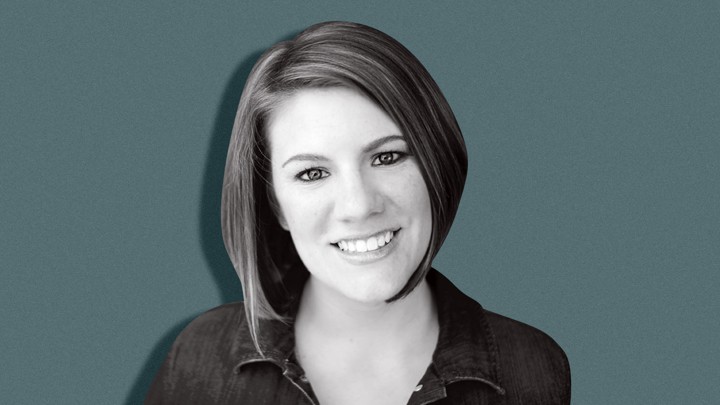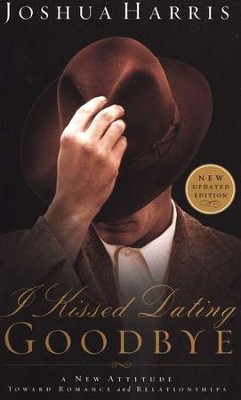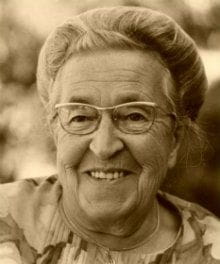"Oh no," my husband sounded concerned a week ago.
I looked up from the book I was reading. "What is it, honey?"
He turned from the computer to meet my gaze. "A Christian author died today. She was our age. She had a husband and two kids"
Wondering if I might know who it was, I asked the author's name.
He squinted at the screen. "Rachel Held Evans."
I racked my brain, but didn't recall the name. Naturally, I looked her up.
 |
| Rachel Held Evans |
As a Christian writer myself, I am always interested in my fellow authors of faith. I saw that Rachel had written four books. Wanting to check her out, I purchased the shortest, least expensive book. Since I bought it on Amazon kindle, it was available immediately. I read it in a couple of hours. My heart truly goes out to her husband and children, and my prayers are with them as they carry on.
As I read her book Faith Unraveled; How a Girl Who Knew All the Answers Learned to Ask Questions, I was disappointed. She joins the long list of post-evangelical female authors who want to share their journey from the "confines" of fundamentalist Christianity to the "liberation" of this vague, undefinable faith that they still consider somewhere on the Christian spectrum. A year ago, I read and reviewed a similar book When We Were on Fire, by Addie Zierman. Similar stuff. Another outspoken woman in this category writes the blog Parenting as a Liberal, Feminist Christian, in which all she routinely rants about things that evangelical Christians value or do (such as dressing modestly, voting for candidates who espouse biblical values, or having costume parties at churches on Halloween in lieu of trick-or-treating). As if any of this stuff hurts her! What pain does she experience when my church has a "Trunk-or-Treat" outreach? How about when I choose to wear a one-piece swimsuit?!? Come on!
All three of these beautiful women have something in common. They were raised in solid Christian faith and, by their own admission, made a commitment to Christ at a young age. Then, somewhere in early adulthood, they hit a point where they were done. All three (as well as others like them) still claim to be Christians, but with a "redefined" faith. Addie Zierman uses the term "reimagining" her faith.
Both the labels of "fundamentalist" and "evangelical" fit my belief system. I am a fundamentalist Christian. I am an evangelical. But to be honest, I don't use those titles much. I'm a born-again Christian whose faith aligns with the Bible. The terms "fundamentalist" as well as "evangelical," while applicable, are often abused and misunderstood. They are associated with statistics more than personal faith. Those words get people's radars up. I don't want to do that.
Before I talk about Rachel Held Evan's book in depth, I want to clarify what fundamentalism means. The term cropped up for Bible-believers in the 1920's, amidst the rise of modernism--self-proclaimed Christians who did not want to believe the Bible as literally. A big push in this was the Scopes Trial, in 1925. The trial was held in Dayton, Tennessee, and involved the legal right to teach Evolution in public schools. While, at that time, Creationism won the battle, some real damage happened. Fundamental Christians (those who believed in a literal 6-day creation from the book of Genesis) were made to look stupid, and at odds with science. This is a mistaken idea. Evolution is a theory. In a sense, so is Creationism. Both require faith. Neither theory could actually be called science, because, for something to be scientific, it must be observable, measurable and repeatable. Neither Evolution nor Creation fits this definition of science. Both are a matter of faith. Both sides look at available evidence from their own viewpoint. In truth, there is no conclusive evidence to support Evolution. We still have apes today, and we have humans today. Yet, we don't have some link between walking around. If we truly evolved from apes, there probably wouldn't be apes anymore, or if there were, not only would there still be apes and humans, but there would be links, and there aren't (note--this argument, while valid, is not used as much today, since Evolutionists are now no longer claiming we evolved from apes, but that we evolved from a common ancestor to apes. There is still no evidence to support our supposed sub-human ancestors). Also, no one can say what ultimately caused the Big Bang. Additionally, explosions cause disorder, not the order we find in our solar system. These are just some very basic arguments against Evolution that I was taught in junior high by a Christian lawyer who came to speak to our class, and I was convinced for life of the fallacies of Evolution. I studied even more in-depth as I got older, and am more convinced than ever in the truth of Creationism as found in Genesis. For a long time, both Biblical Christians and outspoken atheists have mistakenly agreed that God and science were in disagreement. This isn't true. God created science, and there are Christian scientists who are much smarter than I am who reveal many ways that the evidence supports the claims of scripture. But science aside, Fundamentalists take the Bible at its word. This puts them (us, as I am one of them) at odds with those who do not.
I find it easier to converse with someone who just flat-out disbelieves the Bible and always has than with those who were once Bible-believers and now deny a lot of it, but still hang on to some semblance of Christianity. The former have never encountered and denied Jesus. The latter are usually very bitter and angry. Also, I find their arguments fraught with fallacy. I am going to use Rachel Held Evans as an example. I will say, before I begin, that she is one of few I have read that is not mean or angry. I felt like I actually liked her as a person while I read it.
In her book, she recounts her journey. She grew up in a Christian family in the South. She made a commitment to the Lord at age 5 (much as I, myself, did). She went to AWANA, Sunday school, and had the benefit of a Christian education. As I read this part of her story, I felt I was reading my own life story (except I'm not from the deep South). Since she is my age, I related to her in that way as well. While she was going to AWANA and Christian school in Alabama, I was doing the same in California. It was a happy life.
Rachel struggled with doubts here and there, but her major crisis of faith happened in the early 2000's, while she was attending a Christian college. Shortly after 9/11, she saw a Muslim woman being killed by her own people on TV. It was incredibly tragic. Human life is a gift from God (Psalm 139:14). The crowning glory of creation (Genesis 1:27). Any loss is a tragedy (Exodus 20:13). Like many of us were during that time, Rachel was deeply troubled, wondering where this woman would spend eternity. She was Muslim, and according to the Bible, no one comes to the Father except through Jesus Christ (John 14:6). But did this woman have an opportunity to hear the gospel? She was in a Muslim country. She had been raised on the teachings of Islam. According to information Rachel later discovered, this woman was in an abusive marriage. How did this poor woman have a chance to hear the gospel? Would God take all of it into account? This led Rachel to wonder if she, herself, was a Christian because she was an American, much the way this woman was Muslim by virtue of being a Middle Easterner. What did God do with people who never heard the gospel? Was it fair of God to condemn anyone to Hell who didn't follow Him? Were there exceptions? If so, what were they? Was there hope for this Muslim woman who had died on TV?

This led Rachel to deeply question her faith. She spent time thinking and studying. She asked a lot of questions, and the answers she got did not satisfy her. She eventually came to the point of faith that was very vague. When evangelists asked her if she was saved, she answered, "Jesus and I are still working on that one." She continually defined Christianity as an American religion that excluded other nations and cultures. She blames the Iraq and Afghanistan wars (and George W. Bush personally) for her faith struggles. She admits parts of the Bible she doesn't like or know what to do with. She is uncertain about whether she still believes in Creation or if she is now an Evolutionist. She repeatedly states that there is a lot of scientific evidence to support Evolution, but never once shares what that evidence is. She kind of picks and chooses what parts she still follows. She actually said that she doesn't like the phrase "picks and chooses" because she claims to put a lot more thought into it than simple picking and choosing. She refers to her faith as "evolving". She says in her blog (which I looked up after reading the book), "Jesus is the one thing I'm willing to risk being wrong about." Well, now she is face to face with God, so there is obviously no more vagueness.
Here is my response to this. I find it ironic that she left evangelical Christianity because her questions weren't answered to her satisfaction, and yet joined this vague faith with no solid answers and that's somehow okay. As Christians, it is okay not to have all the answers. It's enough that God does. He is all knowing, and we are not. But where she was at when she wrote the book confuses me. Kind of hypocritical to leave a faith because of unanswered questions, and then being part of a faith movement without any answers at all.
As for this Muslim woman who died, and all who die without Christ: First John 3:20 says, "God is greater than our heart, and knows all things." God knew what was in this woman's heart. God has greater understanding that Rachel did, or than any of us does. Isaiah 40:28 says that there is no searching of His understanding. We know from Second Peter 3:9 that God is not willing that any should perish, but that all should come to repentance. We also know that God made one way to get to Heaven. One way to have eternal life with Him. The Bible is very clear about this. In John 14:6, Jesus makes the bold claim, "I am the way, the truth and the life, no one comes to the Father, except through Me." According to this verse, no one--not one person--can come to the Father without Jesus Christ. If there was any other way, would Jesus have died? No way! He prayed in the garden to have that cup pass from Him (Matthew 26:39). In essence, He was praying, "If there is any other way for people to be saved without My having to do this, let that be it!" But ultimately, he surrendered to the Father's will, knowing there was no other way for us to be saved. Being so inclusive to other religions might seem kind toward those people, but is it kind to Jesus? It is a slap in the face to all He suffered. Romans 1:20 gives us some insight into this as well. "For since the creation of the world God's eternal qualities--His eternal power and divine nature--have been clearly seen, being understood by what is made, so that people are without excuse." God reveals Himself to everyone. His creation speaks of Him. Titus 2:11 likewise tells us "The grace of God that brings salvation has appeared to all men." Everyone has some sense of God at work. If they accept what little they receive, I believe God gives them more. John 1:16 says, "For from His fullness we have received, grace upon grace." I believe this means that if people receive that little bit of grace of God made available, He will work further in them, revealing more and more of Himself to them. I don't know where this Muslim woman who was killed was at. Maybe she was questioning Islam and trying to know Jesus. Maybe she was firmly convinced Islam was the way. God has it sorted out. It isn't up to me...or Rachel...to determine if God was fair to this woman.
Secondly, Rachel kept asserting that Christianity is an American religion that excludes other countries and cultures, and that people choose Christianity because they are Americans. That is entirely untrue. Christianity began in Israel. God had been working out the story of our faith since the beginning, After Adam and Eve fell into sin (and brought the entire human race down with them), God promised to send a Savior to pay the penalty for our sins and bring people back to a right relationship with God. This promise was given in the Garden of Eden, somewhere between the Tigris and Euphrates rivers (modern day Middle East). As history rolled along, God chose a people for Himself from which the Messiah would come. This was the nation of Israel. There were times in the Old Testament when God asked the Israelites to do things that seem cruel and strange to us today, such as wiping out all living people and animals of the Amalekites (First Samuel 15). But God had reasons for this. Remember, God was preserving Israel to be a place His Son could come through, and Satan was constantly fighting it (just read the book of Esther for starters!). There were many wicked people who were a threat to Israel, and, for the sake of God's people (present and future), they had to be done away with. Many scholars even believe the Amalekites and others had diseases that would have harmed Israel. That's my two cents on that. It makes sense. Many other times, God grafted outsiders into His people of faith (such as Rahab). Clearly, God loved all people, so there were obviously reasons for what God had His people carry out. But anyway, throughout History, God gave clues about the coming Savior through the prophets, most notably Isaiah. Jesus finally came, and He fulfilled every prophecy, including being born of a Virgin, being born in Bethlehem, and raised in Nazareth. Most importantly, He fulfilled Isaiah 53, dying for our sins! Because of this, salvation is available to all! The gospel spread out from Israel, eventually to the ends of the earth. America is blessed to have been started as a nation of refuge for believers who were persecuted in Europe. But Christianity is not exclusively American, nor is America exclusively Christian. As of 2015, 75% of Americans said they were Christians. However only 29% of Americans claim to be born again, which means many people use the label of Christian without actually being saved at all. This also puts true believers in a minority in a supposedly Christian country. Perhaps many in the US are sympathetic to Christianity, but being sympathetic doesn't mean a person actually believes for himself. Many nations (particularly third-world countries) have a higher percentage of practicing Christians than the United States. And there is a Christian presence in every nation, including Iraq and Afghanistan. This should refute the idea that Christianity is an American religion, or that people in Islam countries have no chance to ever hear the gospel. Perhaps the woman who was killed had heard the gospel. We simply don't know. If someone does consider themselves a Christian simply because they are an American, they clearly aren't a Christian, nor do they even know basic history.
Jesus said it would be that way. Matthew 7:13-14 warns: "Enter by the narrow gate, for broad is the gate and wide is the path that leads to destruction, and there are many who go by it, because straight is the gate, and narrow is the way that leads to life, and there are few who find it." As Christians, we will always be in the minority until we get to Heaven. I am blessed to be in a nation where people are open to Christianity, and where we are able to openly worship and share our faith. I have never been in jail for the gospel, but I have been in trouble for it. I've had my job threatened for it. I've even had the police called on me once for it (the police wouldn't come because I wasn't breaking the law). As believers, we go against the grain. We irritate those who don't buy it. They can't "live and let live." Former Vice-President Dan Quayle has said in his 1994 memoir Standing Firm, "But unfortunately, Conservative Christians are fair game for caricature and abuse...Sadly, prejudice against Conservative Christians is the only acceptable form of bigotry in today's America." He wrote this after four years in the nation's second-highest office, being mocked, maligned and misunderstood for his Christian faith the entire time.

I also consider it very foolish Rachel to blame George W. Bush or the wars for losing her faith. Bush was the only President I know of who shared that he read his Bible daily, and had since long before his Presidency. He is hardly responsible for turning someone from the Bible if he was reading it and trying to follow it so diligently. And regardless of that, the President of the United States may be the highest office in this country and come with a lot of power...but not that much power! No one can make someone else lose their faith. There is no finger pointing at the judgment. We can't stand before God and point at people and say, "so-and-so did stuff I disliked so I rejected You." We are responsible for our own soul. And excuse me for getting political for a second, but, regardless of a person's opinion of how former President Bush handled the Middle East after 9/11, Al Qaeda struck us first. Rachel kept making it sound like it was brother versus brother, both sides were good, and there's this big question about who was really right. That is very inaccurate. War is a very complex and complicated subject, and there are many intelligent people who disagree with each other on how things should have been handled. Personally, I supported Bush at the time, and still do agree with how he handled it. It's okay if you disagree with me. It's a moot point now, and that isn't my purpose here. I just think her arguments are uninformed and emotionally-based. If we're going to blame Presidents, I disagree with many things former President Obama did, but I didn't give up my faith over it. I respected and prayed for my President. We should all be doing that, because the Office of the President is a hard place to be.
Rachel went on to talk about how she doesn't hold to certain parts of the Bible. Yet she used the Bible (mostly out of context) to defend many of her new views. She took the authority away from it, then tried to use it as an authority. Again, this is inconsistent. If you can't believe all of the Bible, why believe any of it? What is the means by which a person decides which parts to keep and which parts to discard? What if people disagree about what parts should be discarded? There is no consistency in this. I have more respect for people who discard all of it than people who cut out parts they don't like but keep the parts they do. The Bible is an all-or-nothing book. God is an all-or-nothing God. Believing part of the Bible is like believing someone who lies to you a lot. How do you know when they're telling you the truth? Either the Bible is completely true, or it is completely false. There is no room for vague interpretations in it.
My biggest issue with Rachel's book is that she went from a solid faith to something vague, and no longer claimed to have assurance of salvation. "Jesus and I are still working on it," she said. That sounds so nice, but First John 5:13 says, "...you may know that you have eternal life, and that you believe on the name of the Son of God." God wants us to be certain of our salvation. Second Peter 1:10 says to "give diligence to make your calling and election sure." That means to have assurance of our salvation. God wants us to know, not just "work on it". The Bible is very clear about what must be done to have eternal life. Jesus himself said, "You must be born again," in John 3:3. The Apostle Paul expounded on what that entails. "Believe on the Lord Jesus Christ, and you will be saved." Acts 16:31. Romans 10:9 has always been a favorite of mine. "If you will confess with your mouth that Jesus is Lord, and believe in your heart that God raised Him from the dead, you will be saved." We need to be reborn by placing our faith in the finished work of Jesus Christ on the cross. That is salvation. Nothing vague about it.
I feel that Rachel (as well as the other post-evangelical women I mentioned) majorly disregard Isaiah 40:13, "Who hath directed the Spirit of the Lord, or, being His counselor, hath taught Him?" We are finite. We are the created. We have no business deciding how God should do it. We have no business "redefining" or "reimagining" the faith so clearly put fourth in the Bible. If there are incorrect things happening in the name of Christ, those things should be corrected using the Bible. Martin Luther did this in 1517 when he nailed his 95 theses to the door of the Wittenberg Castle Church, thus beginning the Protestant Reformation. But just rejecting parts of the faith because they seem mean or exclusive is not up to us. God is the authority. We are not. The road is narrow. Everyone has the option of choosing to enter by the narrow way. But no one has the option of widening it, making it all-encompassing. As I said earlier, that's a slap in the face to everything Jesus went through on our behalf to say, "Well, Islam is another way to God." If that was so, Jesus would never have suffered. It would have been unnecessary. The same is true for saying certain things are not sin that the Bible calls sin. If it isn't sin, Jesus didn't need to die for it...and yet He did.
It is sobering that right now, Rachel is standing before the judgment seat of Christ, giving an account for what she did with her faith. But what is more sobering is that I will one day do the same. Am I keeping in step with the Bible, or am I stepping off and saying what I think the Bible should mean? Am I proclaiming the full counsel of God, or am I purporting my opinion to be God's will? Something to be careful about.
As I had said, I still felt I liked Rachel as I read her story, even though I disagreed with her conclusions. I didn't quite feel the same about the others mentioned. Addie seems sort of whiney, and others seem just plain angry. I can only imagine the hurts these women carry. Addie's book was similar to Rachel's in that she went from firm beliefs to a lot of vagueness. Her journey wasn't as studious. She was hurt and offended by Christian people, and some of the "sub culture" of American Christianity. She is even more vague than Rachel, in that she doesn't really state where she stands now, or what place the Bible has in her life. The implication is that she believes the same way, but gripes about things in Christian culture she doesn't like. She is a good writer, and, being about her age (a little older), I relate to the American Christian world she grew up in. Some parts of it were good and biblical. Others included silly fads that are no longer in existence. But my argument for that is this: every subculture has its own catchphrases and trends that might seem odd to an outsider. I've been friends with people who are Muslim, Mormon, Jehovah's Witness, Hindu, and Jewish. All of them had phrases that I needed to have them explain to me as an outsider. Dislike the catchphrases all you like, but don't put it entirely on evangelical Christians. Every subgroup has them. Also, Addie took exception with certain biblical phrases, such as "born again". That is straight out of the Bible (out of the mouth of Jesus!). We can't take exception to that. All through Addie's book, she looked to people more than God. That is so clear. There is no part in the book where she really seeks the Lord for Himself, in His word and prayer. She always looks at other Christians for validation. They let her down, and she really loses it for a while. I am not denying the pain, but I admit to not having a lot of patience for people who deny the Lord based on rude Christians. I've had my own pain due to rude Christians, and I didn't deny Jesus. Someone being mean to me doesn't make the Bible suddenly untrue. Addie's insecurities played a huge role in her decision making. Yet now, she's suddenly an expert on "reimagining" Christianity. She doesn't state what the basis for this change comes from. If she is looking to the Bible to determine what things people are saying should be part of our faith, then I agree with her. But most of what she said was so vague, I really couldn't tell. There was no authority of any kind (not the Bible, not anything).
Other authors I have read along these lines produce writings that are incredibly bitter. One such female post-evangelical stated in one blog that anyone who disagreed with Obamacare is a racist who hates Obama for his skin color. Whoa! I know Obamacare had some benefits that helped certain people I know, and I'm glad for that. However, it ended up costing me a lot of money and difficulty while it was in effect. While I disagree with parts of Obamacare, I happen to think Barrack Obama is an attractive man. I have nothing against his physical appearance or ancestry. Even though I didn't vote for him, I wasn't one of the people claiming he wasn't an American citizen. I certainly don't hate him, or anyone else. I prayed for him the whole time he was in office. I think his family is lovely, especially his beautiful daughters. This author saying that I hate him simply because I disagree with parts of his plan is so over the top and not an intellectual answer at all. These women accuse fundamentalist Christians of being too political, but they use all kinds of political arguments. I am not sure where these women stand spiritually. This same author says in the intro to her blog that being a Christian means she believes in the Nicene Creed. This creed does proclaim the truth of God and the gospel, but I still find it disappointing that she doesn't share that she is a Christian based on the Word of God. She came across to me as very, very angry. She takes swipes at evangelicals every chance she gets. Again, as with the others I mention, she doesn't share what she actually believes about Jesus or the Bible.
There are things in Christian culture I don't always like either. When I was a teenager in high school in the 90's, I was just about the only person I knew who didn't like the DC Talk song Jesus Freak. My reason for this opinion is long and philosophical, so I won't go into it now. I actually didn't like DC Talk in general either. On a different note, a big concern I have right now is that many of my fellow Christians in my original home state of California follow John MacArthur. I happen to believe he is the most divisive man in Christianity today, and very mean-spirited on top of that. I have lost good friends to him, who decided I was a heretic because I didn't do things exactly the way John MacArthur said they should be (forget what Jesus said!). I've had John MacArthur followers at ministry conferences in Los Angeles (where I presented workshops) confront me very vehemently, as if they were contending for the faith, simply because I used a phrase they had been told wasn't right (such as "invite Jesus into your heart--which is actually found in Ephesians 3:17). That so many of my fellow Christians in California follow him scares me. But will I give up my faith for it? Not on your life! John MacArthur isn't Jesus. I won't let John MacArthur define me or my faith. He hasn't been building the church for 2000 years! Another thing in some Christian circles that concerns me is that many churches are trying too hard to be relevant and "cool" to today's culture. They end up making fools of themselves and not really reaching anyone. I get concerned when any fad/trend sounds good, but people who espouse it don't follow it (such as teens in my 90's youth group who wore WWJD bracelets but didn't live for Christ at all, or kids who "kissed dating goodbye" but were sexually active and hoping people wouldn't find out). I object to the hypocrisy more than the trend (I wore a WWJD bracelet, and read the book myself). All of these Christian culture things concern me, but they are not a means for me to criticize other Christians, or my faith. Jesus settled it on the cross. It's done. I'm done



I am a committed Fundamentalist. I'm committed to Jesus Christ, not fundamentalism as an idea. Nothing anyone has said has steered me from the Bible as my source of Truth. I have a relationship with the Lord. His Holy Spirit lives in my heart. I could no sooner disbelieve Him than I could disbelieve the existence of my mother. I don't hate those who disagree with me. I can withstand intellectual arguments. Christianity has stood up to scrutiny for years. What I refuse to withstand is mean-spirited anger. I will walk away from that ten times out of ten! I've had my own "faith journey", which has involved crises, questions, rejection, pain, and triumph. I came out on God's side. To counter the grievances of these vague "post evangelicals", I have written my own story in a book. I think you would like it. It answers the age-old question: "What
really happens on a mission trip???" Among other things. You can order it for 99 cents from Amazon right
here. I sincerely hope you will, and get in touch with me! You can look up my author page on Facebook as well, to get the latest updates on books and bargains (such as giveaways!). Go to Facebook and look up Janelle Stoermer, author. Blessings to you!























![God's Smuggler by [Andrew, Brother]](https://images-na.ssl-images-amazon.com/images/I/51rUK%2BQJH8L.jpg)

